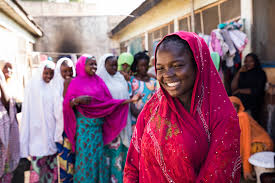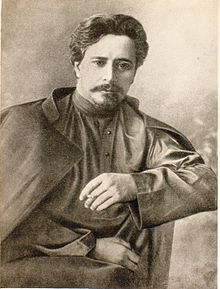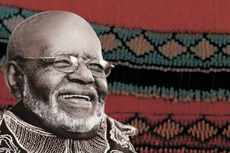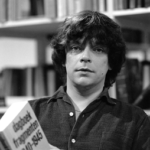The Abuse Of The Right To Sexual And Reproductive Health In Nigeria: The Way Out
Somewhere in Osun State, Nifemi, a three-year old baby, has been put under the knife for her clitoris to be cut off. Somewhere in Zamfara, thirteen-year-old Aisha has been betrothed to a 65-year-old Alhaji. Somewhere in Lekki, ten-year-old Ayoola is being sexually abused by his uncle. Somewhere in Zamfara, new mother, Aisha, just drew her last breath after bleeding profusely due to the negligence of the medical practitioners that handled her childbirth. Each of these people are victims of the failed healthcare system which Nigerians are constantly being subjected to. For a long period of time, the issue of the abuse of the right to sexual and reproductive healthcare in Nigeria has been ignored like a slowly growing pimple. However, the previous pimple has now developed into an unavoidable boil ridden with pus and blood. Much to the chagrin of the powers that be, the ripple effects of the poor handling of sexual and reproductive health in Nigeria, can no longer be swept under the carpet.
The World Health Organisation defines reproductive health as: “A complete state of physical, mental and social wellbeing, and not merely the absence of disease or infirmity in all matters related the reproductive system, its functions and its processes” [1]. The right to sexual and reproductive health has slowly garnered recognition over the past five decades. From the World Population Conferences in Rome and Belgrade held at 1958 and 1965 respectively [2], to the Beijing Conference of 1995 [3]; reproductive and sexual health has constantly been reaffirmed as a sine qua non in the lives of both men and women. In Nigeria, several Acts, and policies alike, have been enacted in order to guarantee this right to every Nigerian. They include, amongst others: The HIV(Anti-Discrimination) Act, 2013; the Violence Against Persons Prohibition Act, 2015; and the National Strategic Framework for the Elimination of Obstetric Fistula in Nigeria (2019-2023) [4].
However, the Nigerian situation seemingly sings a different tune. In spite of the existing legal framework, there have been numerous cases bordering on the flagrant abuse of the right to reproductive and sexual health in Nigeria- ranging from child marriage to sexual violence.
Currently, Nigeria has the highest number of child brides in Africa [5]. Over 20% of global maternal deaths occur in Nigeria with a staggering 600,000 maternal deaths enumerated from 2005-2015 [6]. In the same vein, over 25 percent of Nigerian women have been circumcised, with Osun State hosting the highest prevalence rate of 77 percent [7]. Each of these violations have negative effects on victims, hence, the global attention which the right to reproductive and sexual health has attracted. For example, there has been no report on the health benefits triggered by Female Genital Mutilation; however, numerous studies and research works have reported the harmful effects of female genital mutilation which could range from immediate complications which include: shock, haemorrhage and genital tissue swelling; to long-term complications which include: pain during sexual intercourse, urinary tract infections and menstrual problems [8].
Read more
Leonid Andreyev ~ The Seven Who Were Hanged
Foreword by Herman Bernstein
Leonid Andreyev, who was born in Oryol, in 1871, is the most popular, and next to Tolstoy, the most gifted writer in Russia to-day. Andreyev has written many important stories and dramas, the best known among which are “Red Laughter,” “Life of Man,” “To the Stars,” “The Life of Vasily Fiveisky,” “Eliazar,” “Black Masks,” and “The Story of the Seven Who Were Hanged.”
In “Red Laughter” he depicted the horrors of war as few men had ever before done it. He dipped his pen into the blood of Russia and wrote the tragedy of the Manchurian war.
In his “Life of Man” Andreyev produced a great, imaginative “morality” play which has been ranked by European critics with some of the greatest dramatic masterpieces.
The story of “The Seven Who Were Hanged” is thus far his most important achievement. The keen psychological insight and the masterly simplicity with which Andreyev has penetrated and depicted each of the tragedies of the seven who were hanged place him in the same class as an artist with Russia’s greatest masters of fiction, Dostoyevsky, Turgenev and Tolstoy.
I consider myself fortunate to be able to present to the English-reading public this remarkable work, which has already produced a profound impression in Europe and which, I believe, is destined for a long time to come to play an important part in opening the eyes of the world to the horrors perpetrated in Russia and to the violence and iniquity of the destruction of human life, whatever the error or the crime.
Introduction by Leonid Andreyev
I am very glad that “The Story of the Seven Who Were Hanged” will be read in English. The misfortune of us all is that we know so little, even nothing, about one another—neither about the soul, nor the life, the sufferings, the habits, the inclinations, the aspirations of one another. Literature, which I have the honor to serve, is dear to me just because the noblest task it sets before itself is that of wiping out boundaries and distances.
As in a hard shell, every human being is enclosed in a cover of body, dress, and life. Who is man? We may only conjecture. What constitutes his joy or his sorrow? We may guess only by his acts, which are oft-times enigmatic; by his laughter and by his tears, which are often entirely incomprehensible to us. And if we, Russians, who live so closely together in constant misery, understand one another so poorly that we mercilessly put to death those who should be pitied or even rewarded, and reward those who should be punished by contempt and anger—how much more difficult is it for you Americans, to understand distant Russia? But then, it is just as difficult for us Russians to understand distant America, of which we dream in our youth and over which we ponder so deeply in our years of maturity.
The Jewish massacres and famine; a Parliament and executions; pillage and the greatest heroism; “The Black Hundred,” and Leo Tolstoy—what a mixture of figures and conceptions, what a fruitful source for all kinds of misunderstandings! The truth of life stands aghast in silence, and its brazen falsehood is loudly shouting, uttering pressing, painful questions: “With whom shall I sympathize? Whom shall I trust? Whom shall I love?”
In the story of “The Seven Who Were Hanged” I attempted to give a sincere and unprejudiced answer to some of these questions.
That I have treated ruling and slaughtering Russia with restraint and mildness may best be gathered from the fact that the Russian censor has permitted my book to circulate. This is sufficient evidence when we recall how many books, brochures and newspapers have found eternal rest in the peaceful shade of the police stations, where they have risen to the patient sky in the smoke and flame of bonfires. Read more
Noam Chomsky: Democratic Party Centrism Risks Handing Election To Trump
 As the 2020 election race heats up, U.S. politics, the nation’s political culture as a whole, and even the future of organized human life are at a crossroads. Another four years of Donald Trump would deliver nightmarish blows to democracy and social rights, handing an unthinkable mandate to a president who has become notorious for undermining virtually everything of decent value to humanity.
As the 2020 election race heats up, U.S. politics, the nation’s political culture as a whole, and even the future of organized human life are at a crossroads. Another four years of Donald Trump would deliver nightmarish blows to democracy and social rights, handing an unthinkable mandate to a president who has become notorious for undermining virtually everything of decent value to humanity.
Yet, the question remains as to whether this dangerous man will actually be defeated in 2020. At the Democratic debate on Wednesday night, we witnessed a cacophony that did little to convey the ideological elements and political values that define the Democratic Party in the age of authoritarian neoliberalism and plutocracy. Intellectual shallowness and opportunism were prevalent throughout the debate. Pete Buttigieg’s meager attempts to parry questions on his lack of support among Black voters attracted the most buzz. Meanwhile, Elizabeth Warren’s reasonable and anything but radical “wealth tax” proposal received little attention because it remains an anathema to the political establishment of the Democratic Party, as do Bernie Sanders’s universal health care and climate change policies.
Indeed, as evidenced by the lack of a coherent vision on the part of most candidates in Wednesday’s Democratic debate in addressing the real threats and challenges facing the country and the whole planet, the Democratic Party is still unable to get its act together, and, in its apparent determination to kill the left wing, it may very well end up ensuring a Trump electoral victory for a second time.
To discuss what is really at stake in the 2020 presidential election,Truthout’s C.J. Polychroniou interviewed Noam Chomsky, the world’s leading public intellectual and a founder of modern linguistics. Chomsky is Professor Emeritus of Linguistics at MIT and Laureate Professor of Linguistics at the University of Arizona. He has published more than 120 books, which have appeared in most of the world’s languages, and is the co-author of the forthcoming book with Robert Pollin and C.J. Polychroniou titled, The Political Economy of Climate Change and the Green New Deal (Verso, 2020).
C.J. Polychroniou: The 2020 U.S. presidential election is less than a year from now, and, while most polls seem to indicate that Trump will lose the national vote, the electoral vote is up for grabs. What manner of a democracy is this, and why isn’t there a public outcry in this country about the antiquated institution of the electoral college?
Noam Chomsky: Preliminary comment: I find it psychologically impossible to discuss the 2020 election without emphasizing, as strongly as possible, what is at stake: survival, nothing less.
Four more years of Trump may spell the end of much of life on Earth, including organized human society in any recognizable form. Strong words, but not strong enough.
I would like to repeat the words of Raymond Pierrehumbert, a lead author of the startling [Intergovernmental Panel on Climate Change] report of October 2018, since replaced by still more dire warnings: “With regard to the climate crisis, yes, it’s time to panic. We are in deep trouble.” These should be the defining terms of the 2020 election.
Environmental catastrophe is an imminent threat. Much of the world is taking steps to deal with it — inadequate, but at least something. Trump and the political organization he now virtually owns are taking steps too — to exacerbate the crisis. Some may recall [George] W. Bush’s infamous call, “bring it on,” directed to Iraqis preparing to “attack us” (in what happened to be their country, but put that aside). Bush later apologized, with regret, but Trump is proud to outdo him, calling on the rising seas and burning Earth to put an end to the human experiment.
In fairness, we should add that Trump is also pursuing ways to avert the environmental threat — destroy us first by nuclear war. That is the simple logic of his demolition of the Reagan-Gorbachev [Intermediate-Range Nuclear Forces] Treaty followed at once by testing of missiles that violate it; the threat to dismantle the (Eisenhower-initiated) Open Skies Treaty, and finally, New START. These final blows to the arms control regime constitute, very simply, a call to other nations to join us in creating new and even more horrendous weapons to destroy us all, to the unrestrained applause of weapons manufacturers.
Those are the highly likely consequences of more of Trump and the party that grovels at his feet, terrified of his adoring base. They provide the essential background for the 2020 elections.
Turning finally to your question, the electoral college is not the most serious anachronism — even worse is the radically undemocratic Senate. These problems are severe, and remediable only by constitutional amendment that is sure to be blocked by the small states. All of this is part of more fundamental problems. A variety of demographic, structural and policy factors are converging to a situation where a small minority — white, rural, Christian, traditional, older, fearful of losing “their America” — will be able to dominate the political system.
These considerations raise further questions about worship of a document from centuries ago that was in some ways progressive by the standards of its day, but would very likely lead to rejection of an appeal for membership in the European Union by a country bound by it.
Read more
Hunter S. Thompson: His Last Shotgun Art. No More Fear And Loathing In Woody Creek.
Hunter S. Thompson, the counter culture ‘gonzo’ journalist, died on February 20, 2005 by a weapon of his choice. The inventor of Shotgun Art and Shotgun Golf fatally shot himself at his Owl Creek farm in Woody Creek, Colorado. He was 67.
‘Prince of Gonzo’ he called himself, ‘Doctor Gonzo’, ‘Doctor of Journalism’, ‘Outlaw Journalist’, ‘Doc’, ‘The Duke’: Hunter Stockton Thompson (Louisville, Kentucky, 1939).
Rock star of the written word.
And as with rock stars meeting one is never an easy task. But we managed, once, after endless waiting and drinking our way into the local bar, The Woody Creek tavern. The sun was already sinking behind the Rocky Mountains, bathing the area around the Tavern in a chill and cheerless light, when finally the great Doctor made his appearance. Five in the morning would have been a more approriate time.
Word had it that Thompson was burned out. That, battle weary, he’d given up on the Gonzo cause. Gonzo comes from the French-Canadian word gonzeaux which means something along the lines of shining path. Hunter Thompson was that path; the only fully fledged grand master of Gonzo. His Gonzo style was often confused with New Journalism, made famous by Tom Wolfe and Gay Talese. But that is quite incorrect. Wolfe and the like attack the truth with the techniques of the novelist. They lose themselves in the minds of their subjects. Thompson lost himself in his own mind, and traced only his own madcap, hallucinatory journey through the many events in his stories. “It’s essentially a ‘what if’,” as P. J. O’Rourke, another Rolling Stone celebrity, quoted Thompson. Read more
Philip Roth ~ The Plot Against America
About The Plot Against America
Set in Newark, New Jersey, in the early 1940s, The Plot Against America tells the story of what it was like for the Roth family and Jews across the country when the isolationist aviation hero Charles Lindbergh was elected president of the United States. Roth’s richly imagined novel begins in 1940, with the landslide election of Lindbergh, who blamed the Jews for pushing America toward war with Nazi Germany. Lindbergh’s admiration of Hitler and his openly anti-Semitic speeches cause increasing turmoil in the Roth household, and in nine-year-old Philip, as political events at home and abroad overtake their daily lives. Alvin, the orphaned nephew the family has taken in, runs away to Canada to fight the Nazis. Sandy, Philip’s older brother, ascribes his parents’ fears to paranoia and embraces Lindbergh’s Just Folks program, which sends him and other Jewish children to live in the “heartland” for a summer. Philip’s mother, Bess, wants the family to flee to Canada before it is too late to escape. But his fiercely idealistic father, Herman, refuses to abandon the country where he was born and raised as an American. Overwhelmed by the tensions around him, Philip tries to run away. “I wanted nothing to do with history,” he says. “I wanted to be a boy on the smallest scale possible. I wanted to be an orphan.” But history will not let go, and as America is whipped into a deadly frenzy by demagogues, the Roths and Jews everywhere begin to expect the worst. In The Plot Against America Philip Roth writes with a historical sweep and lyrical intimacy that have rarely been so skillfully combined. As the novel explores the convulsive collision of history and family, readers take a chilling look at devastating events that could have occurred in America–and consider the many possible histories existing beneath the one that actually happened.
About Philip Roth
In 1997 Philip Roth won the Pulitzer Prize for American Pastoral. In 1998 he received the National Medal of Arts at the White House, and in 2002 received the highest award of the American Academy of Arts and Letters, the Gold Medal in Fiction, previously awarded to John Dos Passos, William Faulkner, and Saul Bellow, among others. He has twice won the National Book Award, the PEN/Faulkner Award, and the National Book Critics Circle Award. In 2005 Philip Roth has become the third living American writer to have his work published in a comprehensive, definitive edition by the Library of America.
Source: http://www.houghtonmifflinbooks.com/
The Plot Against America – PDF-format: https://m.reddit.com/theplotagainstamericabyphiliproth/
Decolonising ‘Decolonisation’ With Mphahlele
Es’kia Mphahlele was a writer, activist, organiser and teacher committed to the view that ‘Afrikan humanness’ is the real key to our freedom.
This week marks the 10th anniversary of Es’kia Mphahlele’s death.
Mphahlele (1919-2008) was a writer of fiction, a journalist, a cultural activist, an organiser and, above all, a teacher. The main aim of his fiction and non-fiction work was dealing with what he characterised as the “first exile” – from home culture and ways of understanding the world – from which victims of colonisation suffered. Mphahlele argued that colonised people should begin by overcoming “first exile” if they are to develop decolonising theories and practices. In an era in which the decolonisation of politics and knowledge has captured the imagination of many people, we would do well to recall Mphahlele’s work.
The focus on “first exile” is important because the ultimate aim of colonisation is to separate colonised people from their sources of economic autonomy, ways of understanding the world, and, ultimately, from themselves. The primary “spiritual striving” of victims of colonisation, not just colonialism, is a striving against what the great African-American intellectual WEB du Bois called double consciousness. Similar ideas were developed closer to home. Writing in the 1940s, HIE Dhlomo explained that successfully colonised individuals are ‘neither-nor’ characters who “are neither wholly African nor fully Europeanised”. Dhlomo showed that the double consciousness of these characters was evident in their use of “European measuring rods for success, culture, goodness, greatness”.
In a settler colonial context, the work of colonisation would be achieved when leaders of the colonised people calibrate their demands to Western-style multiparty democracy, civil rights and, therefore, the integration of the elite layer of the colonised people into the historically white world. In such a context, the world and privileges of the settler minority are legitimised and guaranteed, while ‘uncivilised’ people, the majority of the population, continue to exist on the underside of the new society.
When the ‘decolonial’ is fundamentally shaped by the colonial
But not all projects of self-determination take the lived experiences and ideas of this majority seriously. Some are attached to colonialist ideas or obsessed with whiteness, leading to ‘radical’ projects that recenter what they aim to challenge.
In the first case, seemingly decolonial projects repeat colonialist ideas about the inherent differences between black and white; the uniqueness of ‘black culture’ and its supposedly essential traits; and the need to retrieve ‘native’ discourses; forgetting that ‘the native’ comes into being only when the settler arrives and that ‘native’ discourse is constituted by what Congolese philosopher VY Mudimbe calls the “colonial library” – colonial experts of various kinds.
In the second case, the black radical’s ‘colonial mentality’ manifests in projects whose main aim is to shame historical colonisers by constantly repeating anti-black discourses that the black man is not human and cannot coexist with humanity. This trend can be seen in certain strands of Afro-pessimism.
The important point here is that decolonisation often needs to be decolonised itself. In South Africa, no other thinker grappled with this dilemma more than Mphahlele. Read more






